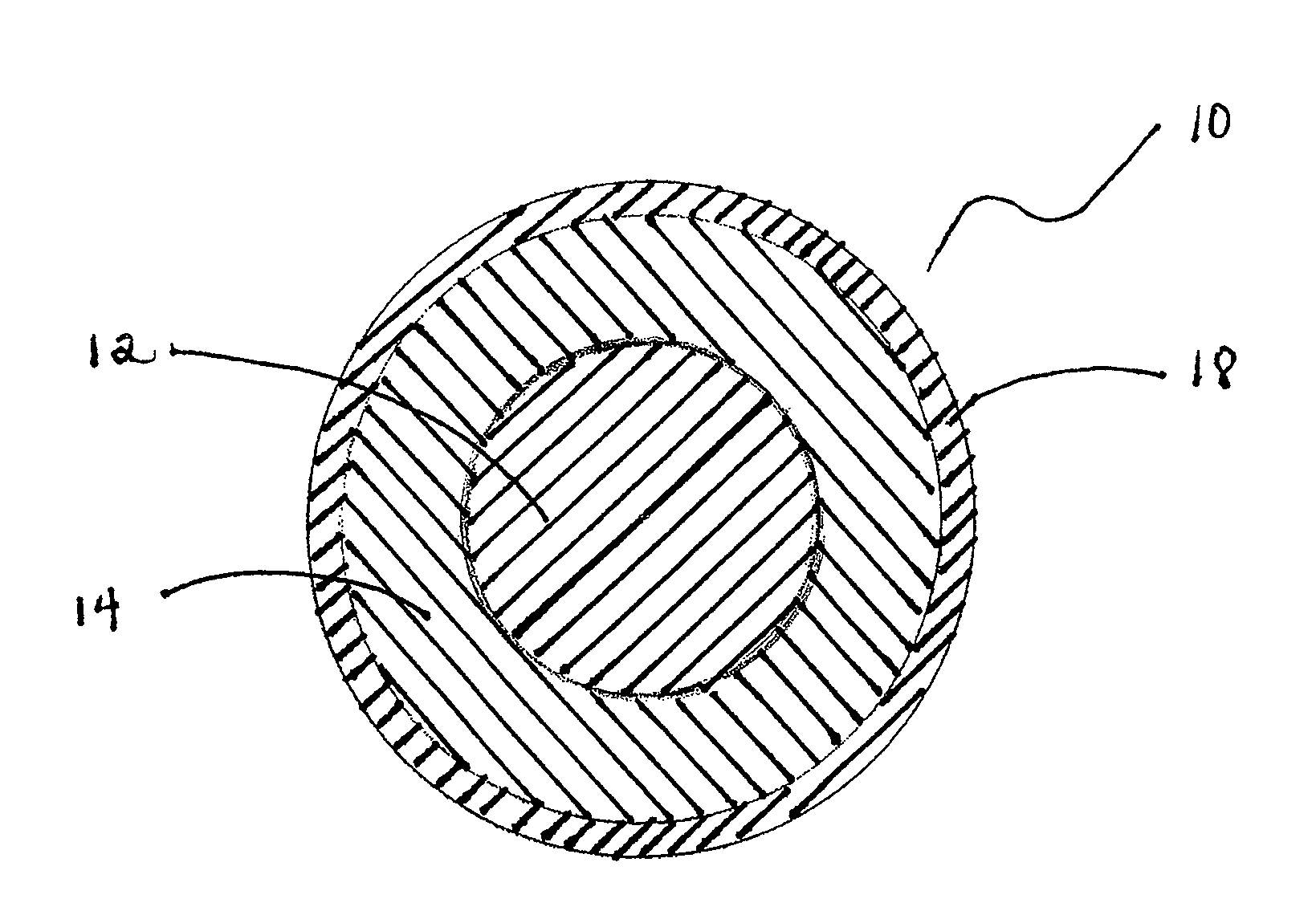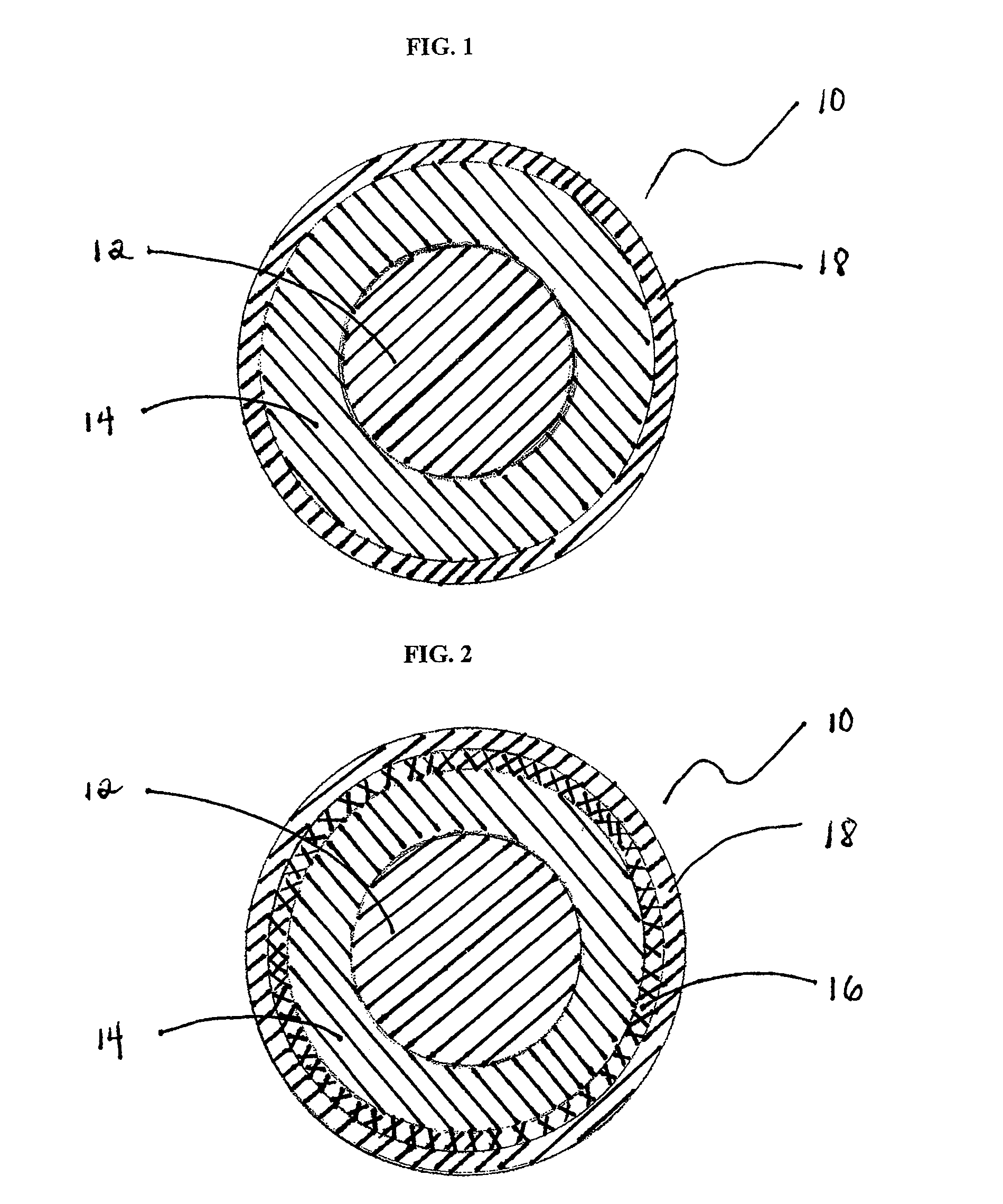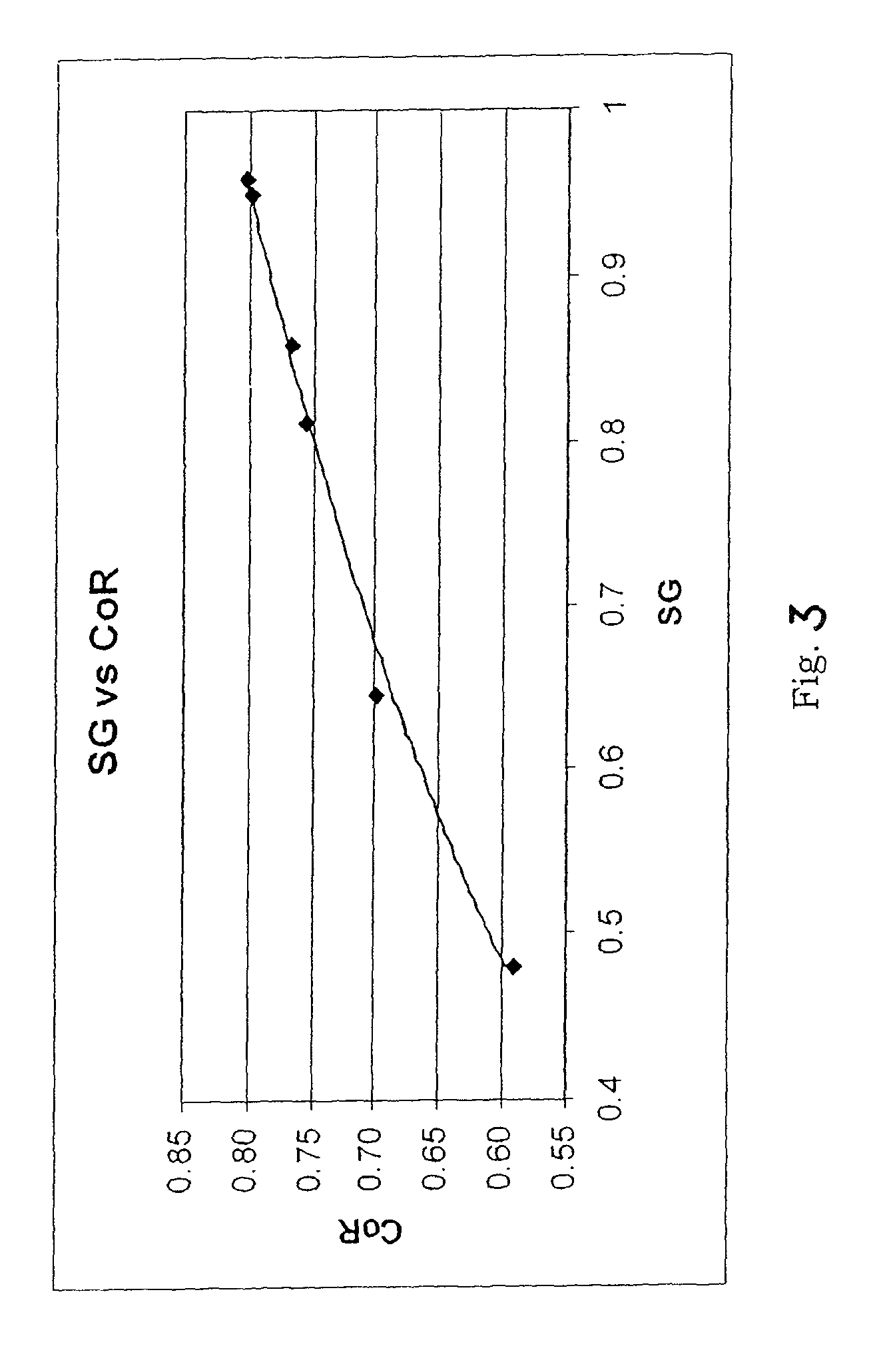Foam-core golf balls
a golf ball and foam core technology, applied in the field of foam core golf balls, can solve the problems of high spin rate golf balls, increased compression, and recreational players who cannot intentionally control the spin of golf balls
- Summary
- Abstract
- Description
- Claims
- Application Information
AI Technical Summary
Problems solved by technology
Method used
Image
Examples
Embodiment Construction
[0013]It is well known that the total weight of the ball has to conform to the weight limit set by the United States Golf Association (“USGA”). Redistributing the weight or mass of the ball either toward the center of the ball or toward the outer surface of the ball changes the dynamic characteristics of the ball at impact and in flight. Specifically, if the density is shifted or redistributed toward the center of the ball, the moment of inertia is reduced, and the initial spin rate of the ball as it leaves the golf club would increase due to lower resistance from the ball's moment of inertia. Conversely, if the density is shifted or redistributed toward or within the outer cover, the moment of inertia is increased, and the initial spin rate of the ball as it leaves the golf club would decrease due to the higher resistance from the ball's moment of inertia. The radial distance from the center of the ball or from the outer cover, where the moment of inertia switches from being increa...
PUM
 Login to View More
Login to View More Abstract
Description
Claims
Application Information
 Login to View More
Login to View More - R&D
- Intellectual Property
- Life Sciences
- Materials
- Tech Scout
- Unparalleled Data Quality
- Higher Quality Content
- 60% Fewer Hallucinations
Browse by: Latest US Patents, China's latest patents, Technical Efficacy Thesaurus, Application Domain, Technology Topic, Popular Technical Reports.
© 2025 PatSnap. All rights reserved.Legal|Privacy policy|Modern Slavery Act Transparency Statement|Sitemap|About US| Contact US: help@patsnap.com



